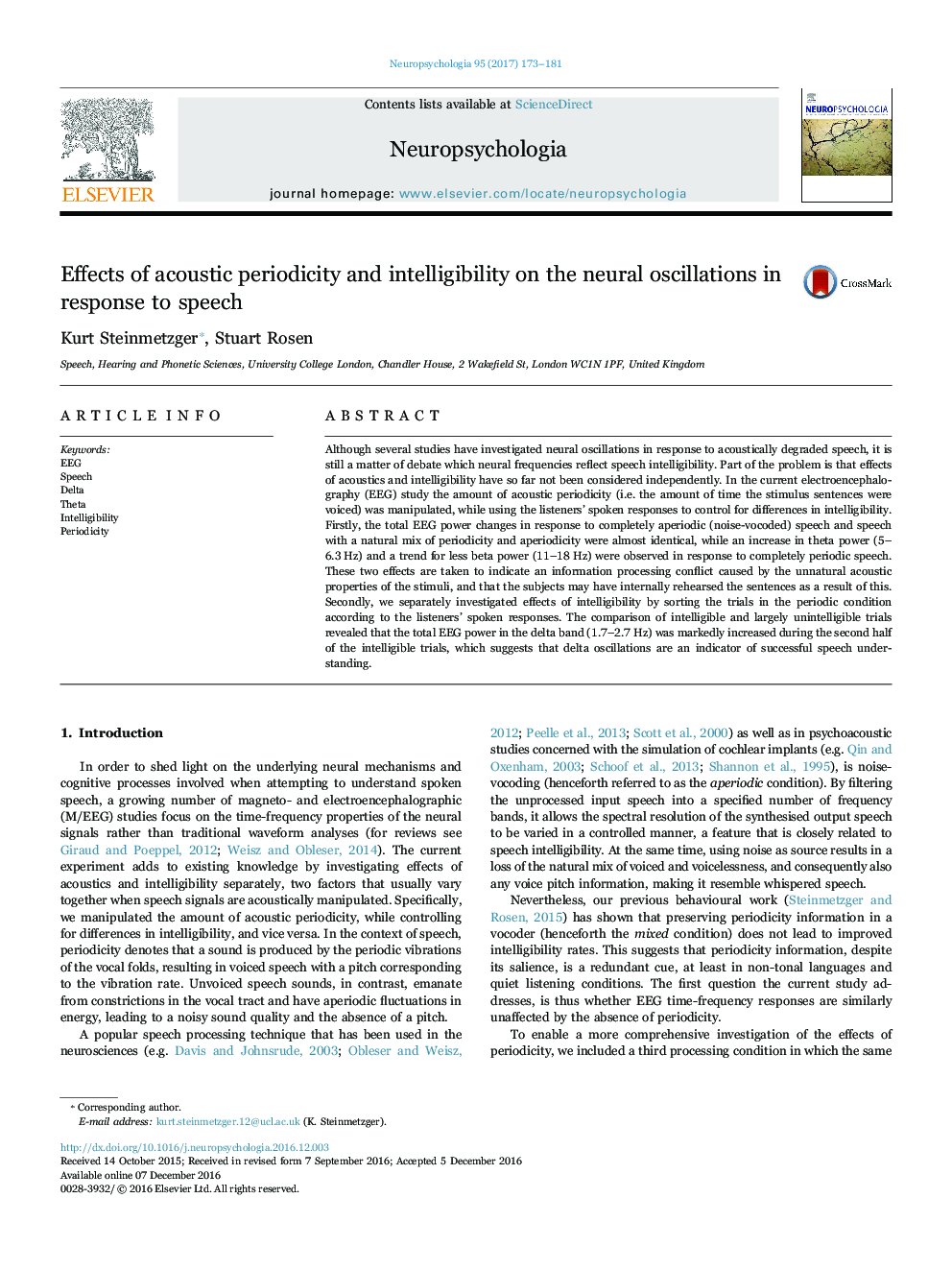| کد مقاله | کد نشریه | سال انتشار | مقاله انگلیسی | نسخه تمام متن |
|---|---|---|---|---|
| 5045194 | 1475560 | 2017 | 9 صفحه PDF | دانلود رایگان |
- EEG power changes in response to acoustically degraded sentences were measured.
- Effects of acoustic periodicity and intelligibility were analysed separately.
- Delta power was strongly increased during the second half of intelligible sentences.
- Unnatural sounding fully periodic speech led to an increase in theta power.
- This might reflect that the subjects internally rehearsed the difficult materials.
Although several studies have investigated neural oscillations in response to acoustically degraded speech, it is still a matter of debate which neural frequencies reflect speech intelligibility. Part of the problem is that effects of acoustics and intelligibility have so far not been considered independently. In the current electroencephalography (EEG) study the amount of acoustic periodicity (i.e. the amount of time the stimulus sentences were voiced) was manipulated, while using the listeners' spoken responses to control for differences in intelligibility. Firstly, the total EEG power changes in response to completely aperiodic (noise-vocoded) speech and speech with a natural mix of periodicity and aperiodicity were almost identical, while an increase in theta power (5-6.3Â Hz) and a trend for less beta power (11-18Â Hz) were observed in response to completely periodic speech. These two effects are taken to indicate an information processing conflict caused by the unnatural acoustic properties of the stimuli, and that the subjects may have internally rehearsed the sentences as a result of this. Secondly, we separately investigated effects of intelligibility by sorting the trials in the periodic condition according to the listeners' spoken responses. The comparison of intelligible and largely unintelligible trials revealed that the total EEG power in the delta band (1.7-2.7Â Hz) was markedly increased during the second half of the intelligible trials, which suggests that delta oscillations are an indicator of successful speech understanding.
Journal: Neuropsychologia - Volume 95, 27 January 2017, Pages 173-181
